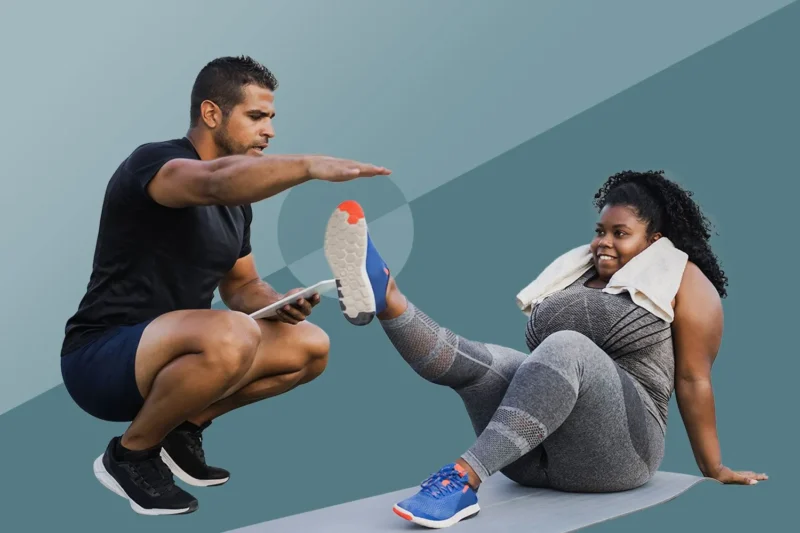Personal training can be an extremely rewarding career, but it is not something to take lightly. Aspiring personal trainers must understand the legal implications of entering the field without certification, so they can make the best professional decision for themselves and their clients.
This article explores what individuals need to know about practicing as a personal trainer without certification and how it could impact them in terms of legality. It also highlights potential risks associated with doing so and offers some advice for those considering this route.
Ultimately, readers will gain insight into whether or not it is possible (or legal) to become a successful personal trainer without holding any formal qualifications.
Overview of Certification Requirements
The Overview of Certification Requirements section will provide an overview of the legal requirements for personal trainers to attain certification to practice. It will cover national, state, and local regulations, as well as any additional certifications required depending on the jurisdiction.
This section also covers the types of certifications available and how they are obtained. Additionally, it examines potential restrictions or drawbacks associated with not obtaining a certification before practicing as a personal trainer.
Lastly, this section guides where one can look for more information about relevant laws governing fitness professionals in their respective locations.
Potential Legal Consequences for Practicing Without Certification

When it comes to personal training, certification is a must. It’s illegal in many states for people to practice as a personal trainer without the necessary credentials, and there can be serious legal consequences if they do.
Potential punishments include fines or even jail time for those found guilty of practicing without an appropriate license or certification. Furthermore, civil lawsuits may also arise if clients experience harm due to unqualified personal trainers providing services that they are not certified to perform.
Clients who have been injured by an uncertified operator could seek damages from the individual in question and their employer as well. All potential personal trainers need to understand that operating without proper qualifications puts them at risk of violating state laws and facing stiff penalties which could negatively affect their career prospects and financial wellbeing. Therefore, when considering entering the field of personal training individuals must take the time to research their local regulations and obtain any applicable certifications before beginning work on clients.
Benefits of Becoming a Certified Personal Trainer
Becoming a certified personal trainer has many benefits. For starters, it ensures you are qualified and knowledgeable in the field of fitness.
Certified trainers possess an understanding of anatomy, exercise physiology, nutrition, and other components that make up successful fitness programming. Additionally, certification provides credibility when working with clients or employers as they can trust that you have met minimum standards established by a regulatory body.
Certification also offers opportunities to stay current on industry trends through continuing education requirements – keeping your skills sharp and up-to-date. Finally, obtaining certification shows dedication to the profession which can open doors to career advancement down the road.
How to Get the Necessary Credentials

In today’s world, obtaining the proper credentials to practice as a personal trainer is essential. Knowing what is legally required of you and how to get it can help ensure that your professional career is on the right track.
Here are the key things to know about getting the necessary credentials for working as a personal trainer: 1. Research Certification Requirements: Depending on where you live, there may be different requirements in terms of certification and licensure needed to become a personal trainer.
Do some research into your state or country’s governing body for fitness professionals and learn what certifications you need to work legally as a personal trainer. 2.
Look Into Accredited Education Programs: Many countries have accredited education programs designed specifically with aspiring trainers in mind—these courses offer students an opportunity to gain knowledge from experts so they can confidently acquire their certification when they finish their program of study. Check out any available online resources or look into local schools offering specialized training courses related to becoming a certified personal trainer near you.
3. Find Out About Professional Organizations & Memberships: Consider joining national organizations like The American College of Sports Medicine (ACSM), National Strength & Conditioning Association (NSCA) or International Health, Racquet & Sportsclub Association (IHRSA). These organizations provide access not only to valuable industry insights but also special discounts on events and services that could benefit your professional development over time if pursued correctly! 4.
Get Exam Ready: Once all educational requirements have been met, it’s time for the big day—the exam itself! Prepare yourself mentally and physically by studying hard beforehand; understand what will be expected from you during testing so that when test time rolls around, nerves don’t get in the way of success! Don’t forget to check out any review materials offered by accredited institutions which could prove invaluable come exam day!
Conclusion
In conclusion, personal trainers need to know the laws and regulations that govern their profession. In Virginia, practicing as a personal trainer without certification is not illegal; however, certifications demonstrate proficiency in areas such as anatomy and nutrition.
Additionally, insurance companies may require a certification before offering coverage to Personal Trainers in Virginia. Without proper credentials or licensing by an appropriate governing body, many gyms will also refuse to hire you as a Trainer.
Ultimately, obtaining valid certifications and licenses should be considered essential for any aspiring professional Personal Trainer in Virginia.



